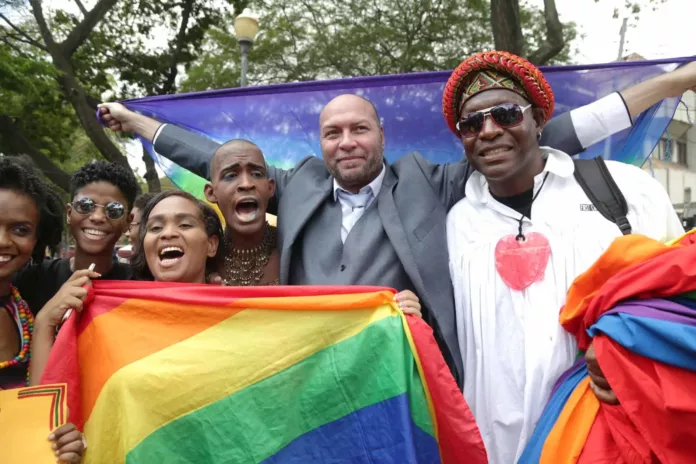The Human Dignity Trust is deeply disappointed by today’s decision from the High Court in St Vincent and the Grenadines, that upholds the criminalisation of consensual, same-sex sexual activity.
The High Court failed to overturn discriminatory anti-LGBT laws, inherited from colonial times. These laws target LGBT people by criminalising same-sex sexual activity, with punishment of up to ten years’ imprisonment.
Today’s decision is manifestly at odds with the positive trend towards decriminalisation in judgments delivered by nearby courts in the Eastern Caribbean in 2022, as well as a landmark 2021 decision from a top regional human rights tribunal that found that similar laws criminalising LGBT people in the Americas violate international law.
In 2019, Javin Johnson and Sean Macleish, two gay Vincentian men living in the United Kingdom and the USA respectively, filed the legal case challenging the constitutionality of these laws. VincyCHAP (St Vincent and the Grenadines Chapter of the Caribbean HIV/AIDS Partnership), a local non-governmental organisation that works on HIV prevention and treatment, joined the case in 2021 as an interested party.
Téa Braun, Chief Executive of the Human Dignity Trust, an international human rights organisation, said, ‘This is a huge disappointment for LGBT people in St. Vincent and the Grenadines. The judgment stands in stark contrast to decisions striking out these outdated laws by neighbouring courts in Barbados, Antigua and St Kitts just last year, as well as other courts around the world.’
St. Vincent and the Grenadines is one of only six remaining criminalising countries in the Western Hemisphere.
‘There are still six countries in the Americas where laws criminalising LGBT people that have been in place since colonial times continue to dwell on the statute books,’ Braun continued. ‘Today’s decision, predicated in part on the fact that the individual claimants do not live in St Vincent, frustratingly upholds these stigmatising laws.’
Criminalisation creates an environment of shame, stigma and violence for LGBT people, which in turn hinders the availability, access and uptake of HIV prevention, testing and treatment services, thus increasing transmission. Because of this clear link, there remains an urgent need for decriminalisation of consensual same-sex intimacy on public health grounds.
‘LGBT Vincentians are ordinary citizens. They are office workers, farmers, shopkeepers and taxi drivers. They are our sons and daughters, brothers and sisters, parents and grandparents, whose rights are recognised by our Constitution, the supreme law of our land, no matter who they are and who they love. It is time for these archaic unconstitutional laws to be consigned to history,’ says VincyCHAP.

